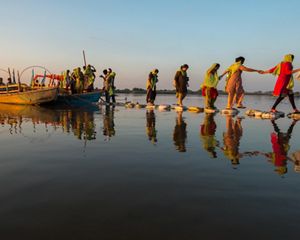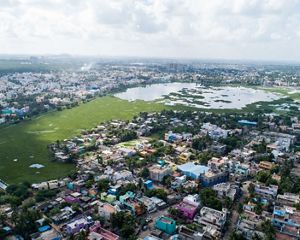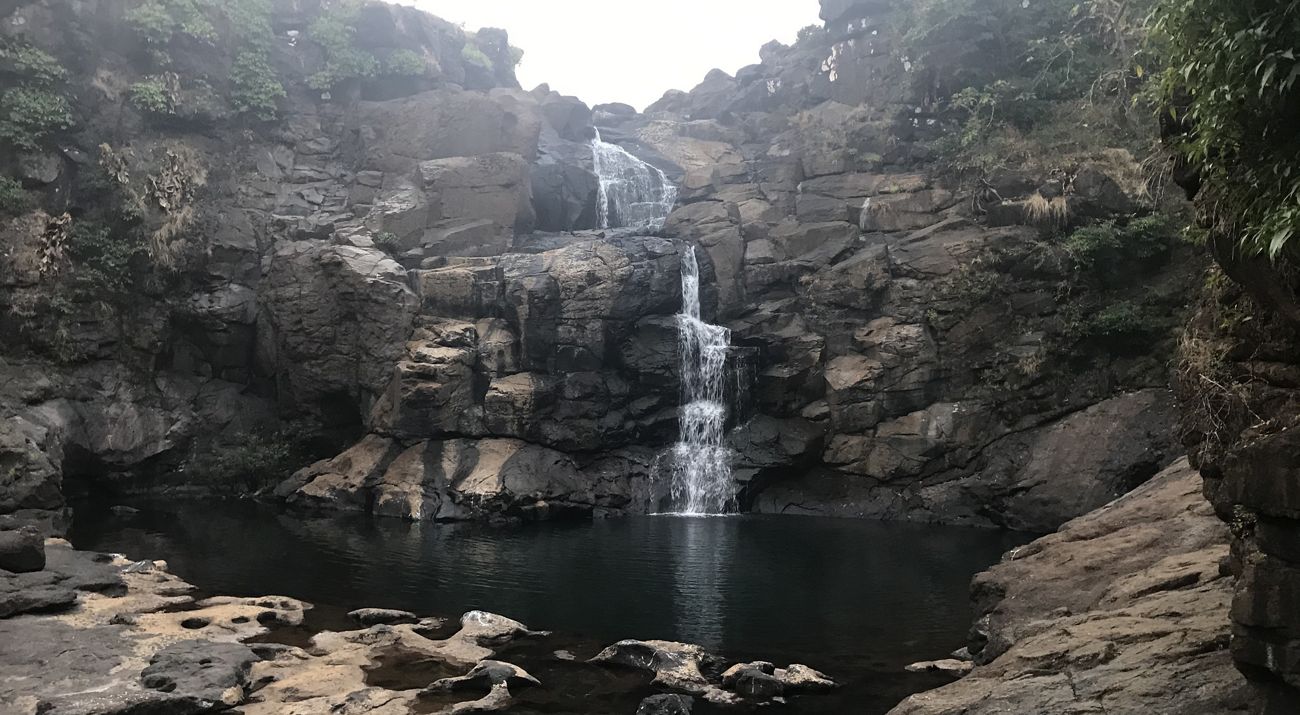
From Maine To India
A trip across the world highlights how local conservation has global impact.
It was three in the morning local time when the plane finally pulled up to the gate. After 17 hours of transcontinental flight, TNC in Maine staffer Elizabeth King gathered her belongings and prepared to greet her first day in India.
After Elizabeth completed the entry process and collected her baggage, she climbed in the back seat of a small sedan and headed to her hotel. Elizabeth held on tight as the car careened down narrow streets crowded with vehicles, most of whom seemed almost never to stop using their horns. Rocketing through Delhi at four in the morning, Elizabeth knew she was a long way from Maine.
But that was the point: Elizabeth was in India to visit a TNC project supported by Maine donors looking to globally extend the reach of our conservation expertise. Last year, TNC in Maine trustees recommended to help fund an innovative water fund project in Pune (pronounced Poonah), India – the nation’s very first water fund. Elizabeth was going to see it firsthand.
Protecting the Water Source
Water quality is a big problem in India. Villages often collect drinking water upstream of their community and dump trash downstream; as the water continues its course, pollution builds, leaving little clean water for people living downstream. Because the best way to naturally provide clean drinking water is to ensure clean upstream headwaters and the forests that protect them, a water fund empowers downstream water consumers to invest in upstream conservation.
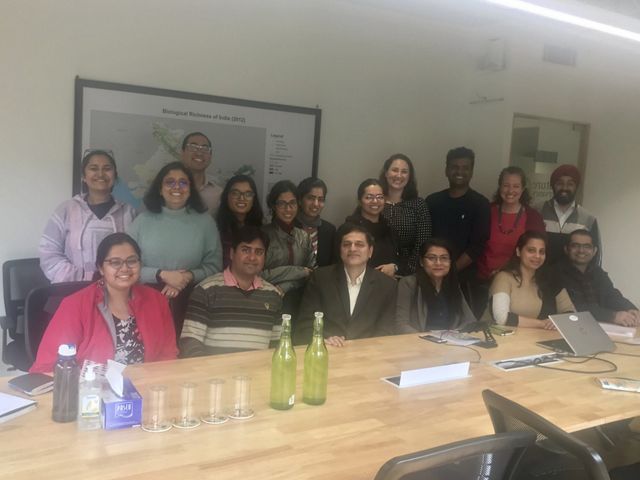
TNC's India program was established in 2017, and Sara Mascola, from the Global Lands Energy and Infrastructure Team, is on a two-year assignment to advise and support the growth and expansion of this new program. Elizabeth began by meeting the growing staff, including her guides for the next leg of her journey: Sushmita Mandal, freshwater lead, and Shuchi Vora, freshwater scientist.
"It was amazing to see the dedication of a talented group really just getting their feet under themselves," recalls Elizabeth. "I felt honored to be a part of it, even just for a short while."
After a day of orientation and project meetings, Elizabeth met Sushmita and Shuchi for a two-hour flight to Pune, one of the larger cities in Maharashtra state and beneficiary of the water fund in the Ghod River Basin. They arranged meetings with local government officials to introduce TNC and the work we do, and to develop relationships as this program gets up and running.
Next, it was off to the Bhimashanker Wildlife Sanctuary, which is the upstream source of Pune's water supply. Along the way, the trio made calls to local NGOs to arrange meetings so they could introduce themselves and understand the conservation "lay of the land" in this area.
Also Good for Habitat
The Bhimashanker Wildlife Sanctuary is the home to a number of endemic species, including the Indian Giant Squirrel. These colorful rodents can measure over three feet long from nose to the end of the tail and weigh over four pounds. They are omnivorous, eating a wide variety of foods, including fruits, flowers, nuts, bark, bird eggs and insects. Typically most active in the morning and evening, Indian Giant Squirrels can leap up to 20 feet from tree to tree! A successful water fund here will further protect the habitat this amazing animal needs to thrive.
After a week of exciting travel, informative meetings and exploration of the Ghod River Basin, Elizabeth prepared to head back to Maine. It may have been half a world away, but it was also an important reminder that the conservation lessons we are learning here are just as relevant in India and around the world.
Quote: Elizabeth King
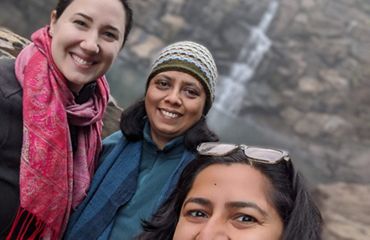
Helped by the support of Maine's trustees, a hardworking team in India is taking on a critical project that will benefit both nature and people. It was an amazing opportunity to see it with my own eyes.
